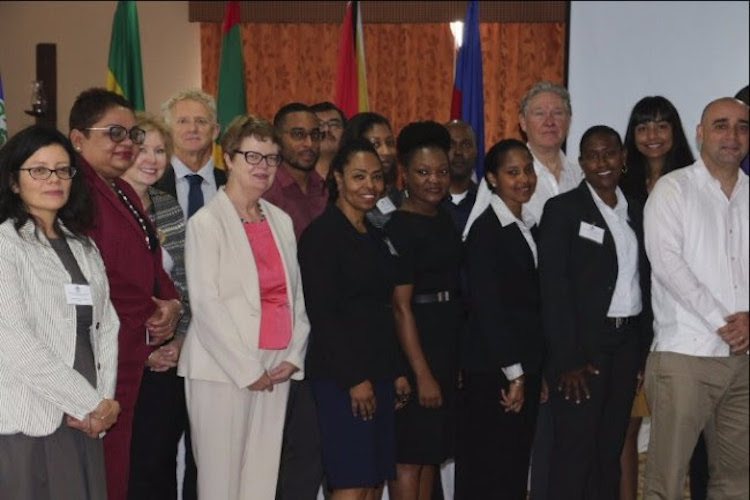By Desmond Brown
BELMOPAN, Belize (IDN) – The countries of the Caribbean Community (CARICOM) have been fine-tuning their positions ahead of the next United Nations preparatory meeting to establish an international legally-binding agreement on sustainable use of marine resources.
The UN meeting is scheduled for March 27 to April 7 and senior environment experts from CARICOM held a two-day workshop here from February 20-22 to discuss the issue.
United Nations negotiations for the new treaty for the conservation and sustainable use of marine biological resources in the world’s oceans – nearly 64 percent of which lie beyond national jurisdictions – began in 2016.
In 2018, the UN General Assembly is expected to decide on the convening of an intergovernmental conference to finalise an agreement.
Addressing the meeting of environment officials, Belize Foreign Minister Wilfred Elrington noted that CARICOM Member States had championed negotiation and adoption of the 1982 UN Convention on the Law of the Seas (UNCLOS), which was opened for signature in Jamaica.
He also recalled that when the International tribunal for the Law of the Sea was constituted, two CARICOM citizens – Edward Laing of Belize and Dolliver Nelson of Grenada – were among the first 21 members of the Tribunal.
“Judge Laing and Judge Nelson are no longer with us but they, together with other key jurists from our region including sitting judge Anthony Amos Lucky of Trinidad and Tobago, have left a legacy on the international stage that is definitive of our region’s commitment to uphold the law of the sea,” he said.
“We have now been called upon to address an area of the law of the sea that has not been adequately provided for in the UNCLOS, whether for want of scientific knowledge, implementation, or as a result of governance and legal gaps.”
For CARICOM, he noted, implementation of this agreement is the only feasible option to ensure that developing countries and Small Island Developing States (SIDS) in particular, benefit equitably from the conservation, sustainable use and exploitation of areas beyond national jurisdictions.
Local populations in the CARICOM region are highly dependent on fish for economic and social development. This resource also contributes significantly to food security, poverty alleviation, employment, foreign exchange earnings, development and stability of rural and coastal communities, culture, recreation and tourism.
The fishing sector provides direct employment for more than 120,000 fishers and indirect employment opportunities for thousands of others – particularly women – in processing, marketing, boat-building, net-making and other support services.
According to Elrington, the agreement will present an opportunity for strengthening the Convention and helping states with the implementation of provisions of UNCLOS related to resources which would not have been contemplated to be the exclusive domain of any state, however large and industrialised.
Dr. Omar Figueroa, Belize Minister of State in the Ministry of Agriculture, Fisheries, Forestry, The Environment, Sustainable Development and Climate Change, noted that the wide range of expertise gathered at the meeting reflected the complexity of marine biological diversity in areas beyond national jurisdictions and stressed the need for a multi-sectoral approach to the issue.
“The coastal Caribbean region is a large marine ecosystem characterised by coral reefs, mangroves and sea grasses, but including other environments, such as sandy beaches and rocky shores,” Figueroa said.
“These tropical ecosystems incorporate a high diversity of associated flora and fauna, and the nations that border the Caribbean collectively encompass a major global marine biodiversity hot spot.”
Through the Cartagena Convention, and through the support of the UN Environment Regional Seas Programme and the many partnerships that have developed around this programme, “the Caribbean has worked to enhance the regional dimension of ocean governance in the areas of marine pollution in all its forms, biodiversity protection, habitat conservation and soon, we expect, in the area of fisheries,” said Figueroa.
“As well, through the Caribbean Community, we have established the Caribbean Regional Fisheries Mechanism (CRFM) which has as its mission the responsible utilisation of the region’s fisheries and other aquatic resources for the economic and social benefits of the current and future population of the region. Suffice to say that, the Caribbean region is replete with good practices in the conservation and sustainable use of our marine resources,” he added.
Only about two percent of the world’s oceans are currently protected, and 80 percent of global fish stocks have been fished to the limit or beyond. In 2014, an international commission of government and business leaders argued that failure to protect the ocean – not just the fish in it – as a finite resource, threatens its ability to recover.
UNCLOS, which went into effect in 1994, was set into place to fill gaps left by earlier UN agreements, which regulated shipping (through the International Maritime Organisation) and fisheries (through the Food and Agriculture Organisation of the United Nations).
The treaty soon was supplemented by the 1994 Implementation of Part XI of UNCLOS, which governs deep seabed mining of non-living resources (through the International Seabed Authority), and the 1995 UN Fish Stocks Agreement, which depends on 10 regional fisheries management organisations to implement its sustainability guidelines. [IDN-InDepthNews – 09 March 2017]
Photo: Representatives of the CARICOM Secretariat and senior environment officials of the Caribbean Community at the CARICOM Regional Workshop on the Conservation and Sustainable Use of Marine Biological Diversity beyond Areas of National Jurisdiction
IDN is flagship agency of the International Press Syndicate

